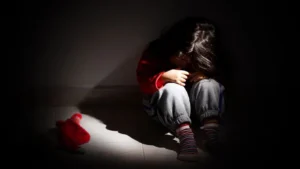Symptoms of OCD Stemming from Trauma
 When OCD is linked to childhood trauma, certain symptoms may be more pronounced or directly related to past traumatic experiences. Understanding these can help in recognizing the signs and seeking appropriate treatment.
When OCD is linked to childhood trauma, certain symptoms may be more pronounced or directly related to past traumatic experiences. Understanding these can help in recognizing the signs and seeking appropriate treatment.
- Trauma-Related Obsessions
Individuals may experience persistent, intrusive thoughts related to their trauma. This could include fears of harm coming to themselves or loved ones, which are not uncommon in OCD but may have a direct thematic link to past experiences of trauma. - Compulsions as Safety Behaviors
Compulsive behaviors, such as checking locks or excessive cleaning, might serve as safety behaviors aimed at preventing feared outcomes related to the trauma.
For instance, someone who experienced neglect might have compulsions around hoarding food or checking on family members’ wellbeing excessively, as a way to ensure safety and security. - Avoidance Compulsions
Trauma survivors with OCD might also engage in compulsions that involve avoiding people, places, or activities that remind them of their trauma, as these triggers can provoke intense anxiety and obsessive thoughts. - Hyper-vigilance in Relationships
OCD symptoms stemming from trauma may include an excessive focus on the safety or fidelity of partners. This could manifest as obsessively checking a partner’s communications or needing constant reassurance of their commitment, reflecting anxiety about abandonment or betrayal. - Physical Sensations as Triggers
Sometimes, physical sensations similar to those experienced during the traumatic event can trigger OCD symptoms. For example, a heart racing from exercise might trigger obsessions and compulsions related to health or safety concerns stemming from the trauma.
How Can I Heal & Manage OCD Caused By Childhood Trauma?

Healing and managing OCD that’s linked to childhood trauma involves a multifaceted approach. Understanding that the roots of your OCD lie in past trauma is a crucial first step. From there, several therapeutic approaches can be highly effective in helping you regain control and improve your quality of life.
Cognitive Behavioral Therapy (CBT)
CBT is a cornerstone in treating OCD, focusing on identifying, challenging, and changing unhelpful thoughts and beliefs. For OCD tied to trauma, CBT can help you understand how your past experiences influence your current fears and behaviors, and how to shift these patterns.
Exposure and Response Prevention (ERP)
ERP, a type of CBT, involves gradually exposing you to the thoughts, images, or situations that trigger your OCD, without engaging in the compulsive behaviors usually performed in response. It’s highly effective for OCD and can be tailored to consider your trauma history, ensuring that exposures are handled sensitively and do not re-traumatize.
Trauma-Informed Care
Therapies that take into account your history of trauma are essential. Therapists trained in trauma-informed care approach your treatment with an understanding of how trauma affects mental health and behavior, providing a safe space to explore these issues without fear of judgment or misunderstanding.
Mindfulness and Relaxation Techniques
Practices like meditation, deep breathing, and yoga can help manage the anxiety and stress that fuel both OCD and trauma responses. These techniques can also improve your ability to tolerate distressing thoughts and feelings without resorting to compulsions.
Seeking Support
Joining a support group for individuals with OCD or those who have experienced similar traumas can provide a sense of community and understanding. Sharing experiences and strategies with others who understand can be incredibly validating and healing.
Professional Help
Engaging with a mental health professional, especially one with experience in both OCD and trauma, is vital. They can guide you through these therapeutic approaches and tailor the treatment to your specific needs.
Managing OCD linked to childhood trauma is a journey that requires patience, courage, and the right support. Remember, it’s possible to heal and regain a sense of control over your thoughts and actions, leading to a more fulfilling life.
Get Help Now!
The relationship between trauma and OCD is complex and multifaceted, illustrating how deeply our past experiences can influence our present mental health. It’s important to remember that while not everyone who experiences trauma will develop OCD, for those who do, the impact on daily life can be profound and distressing.
If you recognize signs of OCD in your life, particularly if they seem connected to past trauma, it’s crucial not to navigate this path alone. That’s where therapy can make a significant difference.
At MantraCare, we understand the delicate interplay between past trauma and OCD. Our experienced therapists specialize in online OCD counseling, offering a compassionate and effective approach to help you manage your symptoms and address the root causes.
For more information and guidance, please contact MantraCare. If you have any queries regarding online OCD counseling, our experienced therapists are here to help. Book a trial OCD therapy session today, and start your journey towards healing.
 Let’s start with the basics. Obsessive-Compulsive Disorder, or OCD, is a condition where people have recurring, unwanted thoughts, ideas or sensations (obsessions) that make them feel driven to do something repetitively (compulsions).
Let’s start with the basics. Obsessive-Compulsive Disorder, or OCD, is a condition where people have recurring, unwanted thoughts, ideas or sensations (obsessions) that make them feel driven to do something repetitively (compulsions).
 Let’s talk about how tough times as a kid and OCD might be connected. Imagine when something really scary or upsetting happens to a child, it can make their brain’s alarm system super sensitive. This means later on, even when everything’s okay, their brain might still say, “Watch out!” and make them feel really anxious. This is where OCD comes in.
Let’s talk about how tough times as a kid and OCD might be connected. Imagine when something really scary or upsetting happens to a child, it can make their brain’s alarm system super sensitive. This means later on, even when everything’s okay, their brain might still say, “Watch out!” and make them feel really anxious. This is where OCD comes in. When OCD is linked to childhood trauma, certain symptoms may be more pronounced or directly related to past traumatic experiences. Understanding these can help in recognizing the signs and seeking appropriate treatment.
When OCD is linked to childhood trauma, certain symptoms may be more pronounced or directly related to past traumatic experiences. Understanding these can help in recognizing the signs and seeking appropriate treatment.

